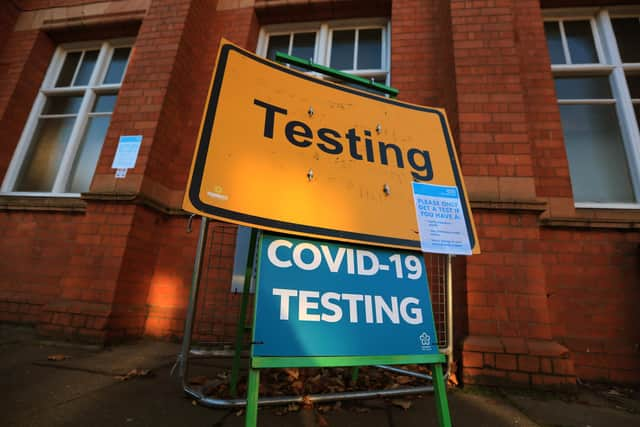How will the days of Covid be remembered by historians? - Jayne Dowle
Facetime became a thing, and not just for the under-16s, who off school and idling for the foreseeable future, were pressed into service as technical advisors. Emboldened by the technology, or perhaps plain bored at being stuck indoors in close family bubbles, old friends popped up from decades ago.
I’ve heard that many a college romance was briefly rekindled thus; Health Secretary Matt Hancock also broke a few vows.
Advertisement
Hide AdAdvertisement
Hide AdStrange to think that we didn’t have a clue about the new rules back then. Which isn’t surprising really; as we now know, politicians were making them up on the hoof, on the back of a takeaway pizza box, when they weren’t whooping it up in the Downing Street garden whilst the rest of us dutifully stayed at home and banged our saucepans. Or not, in my case.


I rediscovered my spirit of rebellion and took to questioning out loud everything I was told at the nightly televised 6pm briefing, watching the PM, Chris Whitty and Jonathan Van-Tam et al terrify us out of our wits.
But I kept it largely in-house, whilst some of my social media contacts went completely off the scale and turned into alarmingly conspiracy theorists. Friendships fractured, families fell out; some of these wounds will never heal.
People were saying that whatever happened, the experience of living through a pandemic – if we survived, that was also an unknown – would shape our lives forever, just as the Second World War shaped that of our grandparents and great-grandparents.
Advertisement
Hide AdAdvertisement
Hide AdSo has it? And if so, how? Not just in the major ways – the devastating knock-on effects of several long lockdowns on the economy, particularly retailers and the hospitality industry, the blow to a NHS and social care system already on its knees, our children’s education held on pause, and the pernicious rot we’ve discovered at the heart of government – but in how we live our lives.
Will historians eventually denote a time period, ‘BP’, before the pandemic, and ‘AP’ afterwards? If so, they will draw the line not just on the big themes, but the things that mark out our daily lives.
‘Lockdown dogs’ that assume the status of human children, and as a result, have absolutely no idea about how to behave in public without a firm parental hand are a particular bete noire.
Some of us have long worked from home, but until the pandemic forced millions of people away from the workplace and in front of Zoom and Teams, everyone assumed that ‘work from home jobs’ involved stuffing envelopes or manning insalubrious chat lines.
Advertisement
Hide AdAdvertisement
Hide AdI salute the elevation of the work from home status, although not when dealing with any kind of customer complaint matter. With some honourable exceptions, Yorkshire Water for example, one long-term effect of the pandemic is the absolute shambles big consumer-facing companies and public bodies such as the DVLA still find themselves in, three years later.
We fume silently when we hear those dread words on a recorded message: ‘Due to the current crisis, we may take longer to answer your call’. Crisis? What crisis? As someone (not Boris Johnson) once said.
Visible signs of the impact of the pandemic are the most obvious, of course.
Before March 2020, most of us would never have considered voluntarily donning a surgical mask to pop to the shops, or even to go for a walk. A commuter on a train in a mask? We would have assumed they were odd, or at least germ-phobic.
Advertisement
Hide AdAdvertisement
Hide AdYet for some people they are still de rigueur, whatever the occasion. Even at weddings, I’m told. On planes too.
If we’re thinking about how Covid changed the way we live, we should also consider how the things we thought had gone forever – certainly in the darkest days of travel bans, when even to go for a long walk could land you with a hefty fine - actually came back with a vengeance.
Travelling through airports and visiting big, bustling cities, you would never have known that three short years ago, departure lounges and station concourses were as silent and sepulchral as empty cathedrals.
And today? I still send up a silent prayer that I survived. And lived to tell the tale.